Right next to Lake Garda, Verona welcomes you with a quiet elegance that captivates at first sight. A city of stone and stories, it unfolds between hills, sunlit vineyards, and ancient olive trees. Each neighborhood reflects a different era, and every corner hides a small surprise. With the help of a local guide, the visit feels lively, almost intimate.
Begin with the Roman amphitheater—still standing, still full of energy. Then let your steps lead you slowly through the Renaissance streets. And of course, stop at that balcony, the one of Romeo and Juliet, now as much legend as memory.
Want to see more without rushing? Our two-day guide to visiting Verona offers a gentle, immersive escape. A true interlude of culture, emotion, and discovery.
Top 5 Guided Tours
Places to Visit
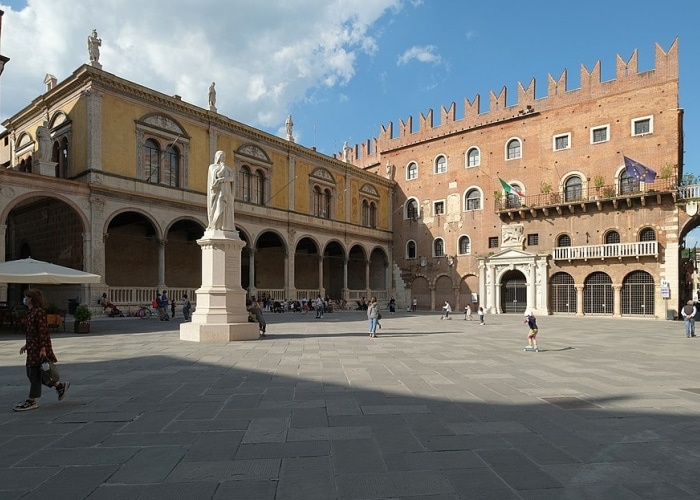
At the heart of Verona beats the city’s medieval soul: Piazza dei Signori. Created in the Middle Ages, it was for a long time the seat of power for the Della Scala family, who shaped the city for over a century starting in the 13th.
Around this elegant square, palaces rise with quiet dignity, and arcades decorated with coats of arms speak of another era. Among the highlights not to miss:
Loggia del Consiglio, a masterpiece from 1493, its marble columns sourced from across the region, a testament to the square’s historic wealth.
Palazzo della Ragione, solid and austere, standing here since the 12th century, right next to Piazza delle Erbe. Above it, the Torre dei Lamberti climbs skyward—the tallest in Verona. And at the very top, the view is raw, immense, impossible to ignore.
Palazzo del Podestà, built by the Scaligeri, recognizable by its swallowtail battlements and its imposing entrance gate.
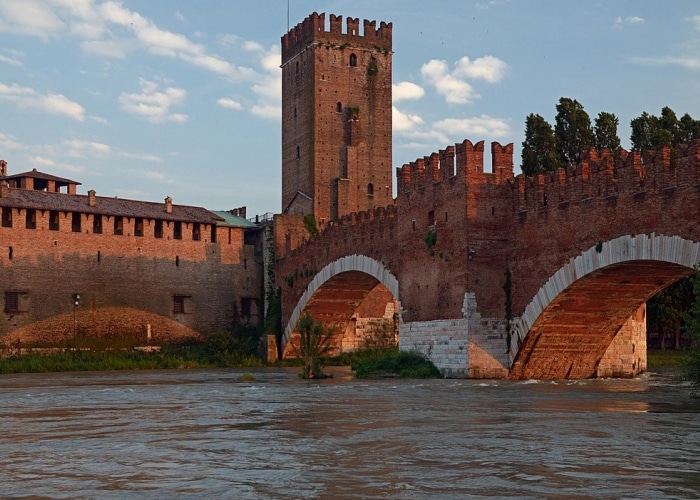
Built in 1356, Castel Vecchio was never just an architectural whim. It was a solid fortress, designed for protection, but also a residence where Verona’s rulers could find refuge—part defense, part display of power.
The first impression is of red brick and thick walls rising without ostentation. In the quiet courtyard, you walk with the sense that the stones still have stories to tell. Time seems to settle gently here.
Now transformed into a museum, the castle presents its collections without pretension. Religious scenes, portraits of long-gone families, Gothic paintings—each room feels like a fragment of history carefully placed within its stone setting.
Beside it, the Scaliger Bridge extends the complex with its three marble arches. Destroyed and later rebuilt almost identically, it feels as though it has always been there, still linking the city to its medieval past.
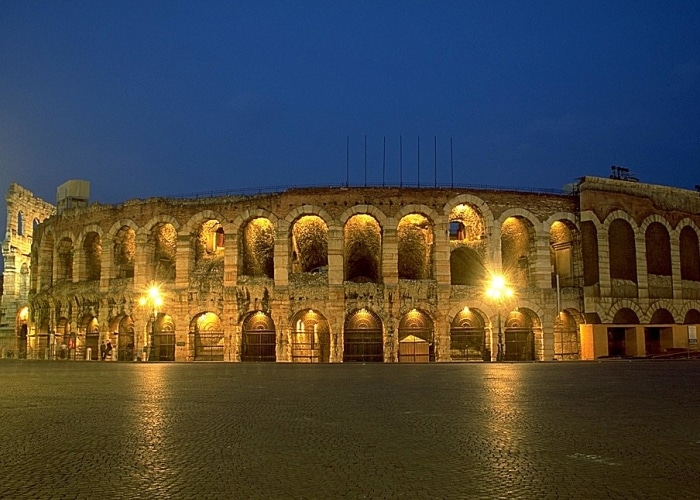
In the heart of the city, Verona’s Arena rises as a vast remnant of Roman times. Built during the reign of Augustus, this amphitheater—150 meters long and 130 wide—once held nearly 22,000 spectators. The stone still bears the marks of its long history.
Stepping inside, the space opens suddenly—wide, almost dizzying. The semicircular tiers invite you to sit for a moment and imagine the noise, the crowds, the spectacles of the past. Today’s silence makes the place even more striking.
But the Arena is far from frozen in time. Every summer, it hosts one of the most famous opera festivals in the world. Voices echo beneath the stars, and the venue comes alive with an energy that feels centuries old.
Between a stop at Castelvecchio and a stroll around Piazza delle Erbe, a visit to the Arena offers another way to measure Verona—a city living fully in the present while holding on to the echoes of its ancient past.
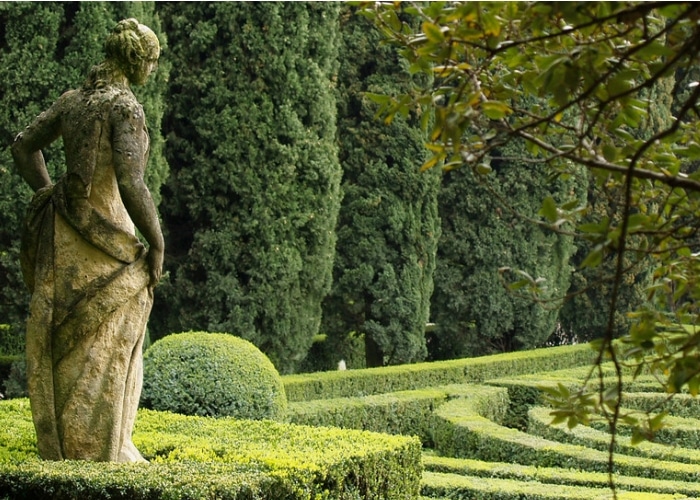
To the east of the old town, a graceful 16th-century palace opens onto the Giusti Gardens. The place has kept its Renaissance spirit, with neatly laid paths and parterres adorned with statues. Entering feels like stepping into a setting that is both refined and serene.
The walk leads you past flowers, fountains, and carefully designed vistas meant to surprise. A staircase hides in one corner, discreet, almost secret. It climbs to a belvedere where Verona unfolds from a completely different angle, far from the bustle of the streets.
It’s said that Goethe once stopped here, in front of a cypress that still stands today. The centuries-old trees give the garden a unique depth, a feeling of suspended time. Every turn seems to invite quiet reflection.
Tucked behind a hedge lies the oldest hedge maze in Europe. Losing your way among its green corridors is part of the charm—an old-fashioned game that ties the place to the city’s long history.
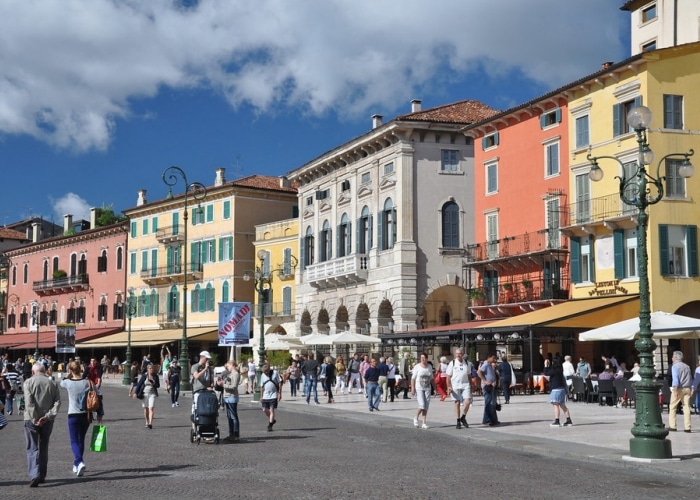
One of the largest squares in Italy, Piazza Brà pulses with the rhythm of the city. Open and lively, it welcomes both locals and visitors in a setting where everyday life mingles with history.
Facing the Arena, near the Palazzo Barbieri—now the town hall—this square is lined with terraces, restaurants, and iconic spots. It’s the perfect place to enjoy a meal, a drink, or simply pause for a moment.
Once a livestock market and later a hub of local trade, today it’s crossed by an elegant marble walkway. For many, this is where a visit to Verona begins—especially if you’re exploring with a passionate local guide.